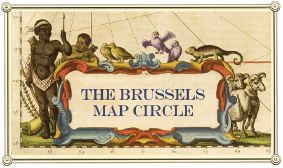Call for Papers: Exchanges about discovery and exploration - Terrae Incognitae 47.2 (2015), 48.1/2 (2016), and 49.1/2 (2017)
Is contemporary scholarship moving away from an establishment of the facts concerning the European exploration of the world—how they traveled, where, and when, and what they encountered — and toward an interest in the variety of narratives and perspectives afforded by an entire world that at one point or another discovered other parts of itself? How do we navigate the realities and dystopias, ethnocentricities and lack of understandings, inherent to the act of discovery conducted by men such as Columbus upon whose narratives and the history books they have engendered we rely for our own research? Do we answer these specific challenges by identifying and asserting new voices as well as counter-perspectives? What new consciousness might we possess today that requires us to revisit past scholarship so that we can reap new knowledge from these historical contexts? And, finally, what is the state of our discipline today; how and why does it remain relevant?
Essays and position papers are invited for a special series devoted to reflecting upon the scholarship of discovery and exploration. Early- and late-career scholars, graduate students, collectors as well as members of our association are encouraged to prepare article - length contributions (4000-6000 words) that will be peer reviewed about the state of our discipline. Specific topics might also include examples of new directions, epistemological and theoretical approaches, and trends in scholarship. Proposals for innovative ways of answering this Call for Papers are also welcome.
Please send inquiries, proposals, or completed manuscripts to the editor of Terrae Incognitae, Lauren Beck (lbeck@mta.ca). Submissions will be considered on a rolling basis for inclusion in the next five issues of Terrae Incognitae.
Posted on
